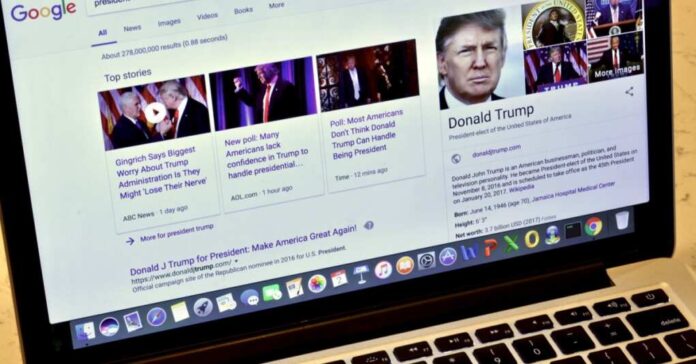In the 2020 and 2022 elections, it appears that Google may have been flexing its algorithmic muscles to give Democrats an unfair advantage. This is not mere speculation. Prominent experts, such as Robert Epstein, former editor-in-chief of Psychology Today, have expressed serious concerns about Google’s influence on election outcomes.
Epstein and his team have been vocal about their findings. In a 2022 interview, Epstein revealed that his research uncovered “substantial bias” in Google’s algorithms. He claims this bias may have influenced as many as 80 million votes during the midterms. That’s a significant number, and Epstein suggests that Google’s algorithm adjustments were essentially like a digital advocate for the Democrats.
Fast forward to late July 2024, and it seems Google might be at it again. Users started noticing suspicious behavior in Google’s search results regarding the upcoming 2024 election. The tech giant appears to be setting the stage for another partisan performance, with the spotlight squarely on Vice President Kamala Harris rather than her opponent, former President Donald Trump.
Elon Musk highlighted the apparent bias on July 31. He searched for a “Trump rally” and was baffled to see results that heavily featured Kamala Harris instead. His tweet, showcasing the unexpected top result, showed that Google’s algorithms had developed a sudden affinity for Harris. For example, if you’re looking for information on a Trump rally, you will see information about Kamala Harris and nearby democratic rallies.
After Musk’s tweet went viral and the spotlight was on Google’s search results, the company quickly adjusted them to be more Trump-centric. However, this adjustment didn’t completely erase the lingering bias. Searches for other Trump-related terms still favor stories about Harris, many of which came from left-leaning sources.
And let’s not overlook Google’s Autocomplete function, which conveniently failed to suggest results for searches about an attempted assassination of Trump.
Epstein and his team studied over 2.4 million instances of Google’s temporary manipulations designed to influence user behavior and opinions. These included biased search results, voting reminders, and other nudges favoring Democrats.
Epstein states these tactics are not just minor glitches but strategic moves that could have swayed millions of votes. His team believes such manipulations were widespread enough to potentially alter the outcome of elections. “You’re talking about the most powerful industry that has ever existed in the history of humankind,” Epstein said before adding that Google is not only shaping our thoughts, behaviors, and political choices in the U.S. but also exerting influence over more than 3.5 billion people globally.
With the 2024 election on the horizon, these latest reports on Google’s search manipulations could be just the beginning. If history is any guide, we might be in for a show where the search results are more about digital theatrics than factual accuracy.




